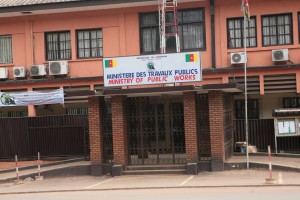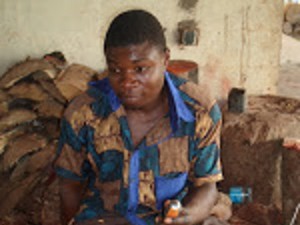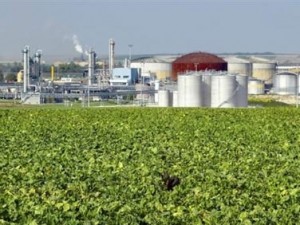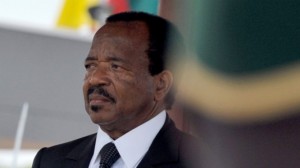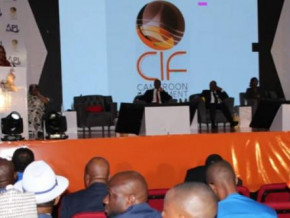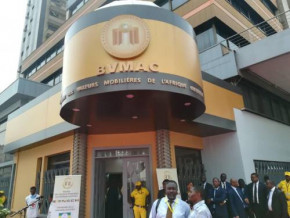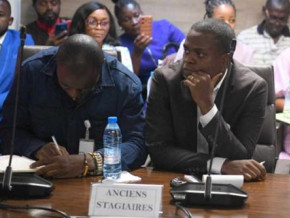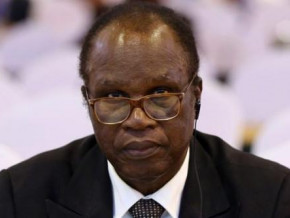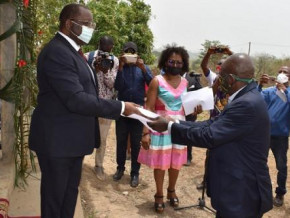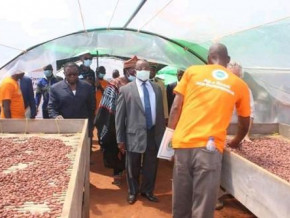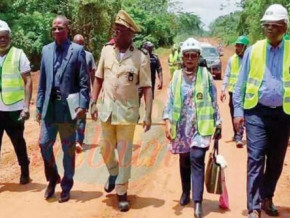
Public Works Ministry Gets New Organigramme
- The Head of State, Paul Biya, has reorganized the functioning of the Ministry of Public Works, allowing it to efficiently pilot infrastructure projects needed to catapult the economy to emergence by 2035.
The new organigramme contained in a Presidential decree of September 13, 2013 creates a department of infrastructure, which is supposed to partner with other structures in the construction of rail, ports (sea and air), energy, as well as environmental projects.
Another new department born out of the presidential decree is that of technical studies. Placed under a Director General, the department will serve as a reference point in matters of technical studies of projects. It is also to follow up the quality and cost as well as deadline of public works infrastructure in the country.
Also Read
23-08-2013 - Bridge Announced Over River Ntem, Links Cameroon and Equatorial Guinea
17-05-2013 - Cameroon Wants To Construct 50 Bridges In All Ten Regions
Private Investments Incentives: Texts of Application Available
A series of Presidential decrees signed on September 9, 2013 set out the mode of operation for the recently promulgated law on private investment incentives in the Republic of Cameroon. One of the texts signed by Paul Biya creates and organizes the functioning of a control committee for effective investment in the country.
Placed under the Prime Minister, Head of Government, the committee has as mission to control the conformity of equipment brought forth by potential investors in connection with the type and sector of investment solicited. It will therefore need to verify the authenticity of documents presented and the business turnover of the company seeking to invest in the country. The committee is chaired by the Secretary General at the Prime Minister’s Office.
Analysts have qualified as revolutionary the April 2013 law and its texts of application which are expected to considerably enhance private investment in the country and all it has in job and wealth creation and then the country’s sustainable socio-economic development.
Also read
06-04-2013 - Gov’t Defends “Private InvestmentIncentives Bill” at Lower House
Studies to assess Cameroon’s biofuel potential
“I see an advantage in studying the possibility of developing biofuels from certain agricultural waste in Cameroon, as it is done with success in some African countries apparently,” President Paul Biya said on December 31, 2007 in his traditional end of year message to the Cameroonian people. Since 2007, Cameroon is yet to identify crops and the appropriate site to be used.
At the Ministry of Water and Energy, the Biofuel Development Project is still in its early stage.
It would take a budget ranging between CFAF 50 and 60 billion (€ 91 million) to research on the biofuel potential of Cameroon, according to Jacques Noutang Betchem, Senior Research Assistant at the Studies and Forecasting Unit of the Ministry of Energy and the Water. “The government has already taken the first studies that simply need to be validated. Based on these studies, investors can inquire about investment opportunities in the biofuel sector in Cameroon,” he says.
“Currently, the government is calling on investors to support the completion of this project,” notes Jacques Noutang Betchem.
B-O.D/J.V
The new government procurement rules become effective
On 19 June 2012, the President of the Republic, Paul Biya, signed a circular stating the terms and conditions of government procurement contract awards, control and delivery. The circular, which represents a reform, according to Paul Biya, seeks to step up transparency in the sector, reduce the government procurement timeframe, and ensure more efficient control and the quality of works undertaken by the State and its components.
The circular draws attention to several reforms. Emphasis is placed on the powers of the Ministry in charge of Government Procurement, which becomes a crucial player in the system. The award of contracts over the counter which was so far been under the responsibility of the Prime Minister, is henceforth entrusted to the Ministry in charge of Government Procurement. This procedure should be exceptional. « It is possible only in one of the limiting cases stipulated in the government procurement code. In this exclusive context, the Minister in charge of Government Procurement may award the contract over the counter, notably those within the powers of the central commissions», the circular explained. This Ministry should ensure that all projects concerning roads, buildings, community facilities and other infrastructure are preceded by geotechnical studies.
Control
The Ministry in charge of Government Procurement, in collaboration with beneficiary administrations, have full powers to control and monitor government contracts. According to this circular, «the ministry in charge of Government Procurement is competent to control the execution of public contracts being performed or already launched, whether they relate to supplies, studies, audits, full or partial contracting authority over roads, buildings or community facilities and other developmental projects, as stipulated in the above-mentioned provisions». The transmission by the contractor, of documents for the payment of services provided will be subject to the prior approval of the Minister in charge of Government Procurement who will give his opinion within three days. The same ministry will, in collaboration with its competent services, undertake unannounced on-site checks of contracts underway to ensure compliance with contract terms and follow-up checks to analyse the behaviour of the completed works.
Letters-orders
The circular also lays special emphasis on the contracting deadline «The government procurement commission has a maximum of 21 days, with effect from the tender opening date, to make its proposed award, including the period granted to the sub-commission to analyse the tenders », the president further stated. The period set for the analysis of technical and financial bids is 7 days maximum. All tenders will be opened at the same time.
The period is10 days if they are opened at two different times, regardless of the importance and type of project, object of the consultation. In case of an emergency procedure, the period is reduced to 5 days, the presidential text further pointed out.
Another innovation relates to the raising of the letter-order ceiling from 5 million to 50 million CfaF. The DG and heads of government departments therefore need to be given a broader field of action. Paul Biya's explanations: Raising the letter-order ceiling to 50 million CfaF is meant to avoid the congestion of the Ministry in charge of Government Procurement, likely to cause slowness and inefficiency in the implementation of identified projects, on the one hand, and on the other hand, avoid the interruption of day-to-day or routine activities of ministries, for which ministers should be able to resort to purchase orders or letter-orders».
According to Paul Biya, the public procurement regulation agency (ARMP) is the supervisor and facilitator of the public procurement system.
|
Authorizing officers |
Amounts of contracts to be awarded |
Procurement commission |
|
Deputy Minister attached to the President’s Office in charge of public procurement |
At least equal to 50 million CfaF |
Central procurement commissions and special procurement commissions |
|
Heads of ministerial Chefs de government departments and other public administrations |
Equal to 5 million CfaF and ≤ to 50 million CfaF |
Ministerial Procurement Commissions |
|
Regional public procurement delegates |
Equal to 5 million CfaF and ˂ to 50 million CfaF |
Regional procurement commissions |
|
Departmental public procurement delegates |
Equal to 5 million CfaF and ˂ to 50 million CfaF With the exception of the procurement of services and intellectual performance contracts amounting to a maximum of 15 million CfaF |
Departmental procurement commissions |
|
DG, executive heads of decentralized local authorities, heads of projects . |
At least equal to 50 million CfaF and less than 500 million CfaF for road contracts and other infrastructure; At least equal to 50 million CfaF and less than 200 million CfaF for buildings and community facilities contracts; At least equal to 50 million CfaF and less than 100 million CfaF for general supplies contracts; At least equal to 15 million CfaF and less than 50 million CfaF for services and intellectual performance contracts . |
Internal procurement commissions |
B-O.D.
Mags frontpage
- Most read 7 days
- shared 1 month
- read 1 month


